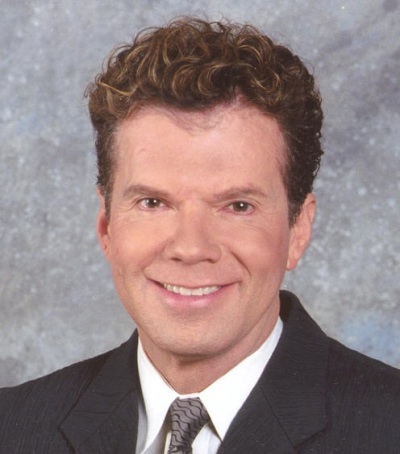The Bible, Science and Profound Mystery

Like many others, I've taken an interest in the brouhaha centering on the Dove Award-winning musical artists Michael and Lisa Gungor. The Gungors let it be known they don't believe that everything in the Bible can be taken literally. In particular they express skepticism over the Biblical accounts of Creation and the Flood, citing this reason for their position: "science and rational thought."
Alas, it's a story all-too-familiar to me, a theoretical physicist and follower of Christ. I encounter it wherever I speak or sign books or in the emails I receive from all around the world. I hear it from people who are loosening or losing outright their belief in the words of the Bible because of some inaccurate understanding of what science and logic requires of a reasonable person. I hear it especially from men and from parents of college-age kids reared in the Church who are now surrendering to various degrees of apostasy.
I hear it directly from the young people themselves, who are filled with questions about science and faith and don't know anyone competent and honest enough with whom they can speak about the possibilities of uniting these two unique and seemingly antipodal human gifts, reason and faith. Indeed, in the United States, I'm convinced that if the Church does not awaken to this growing phenomenon it will alienate an entire generation.
It's already well on its way to doing so. According to the American Bible Society's 2014 State of the Bible report, Millennials (young people between the ages of 18 and 29) are leading a trend toward Biblical illiteracy and skepticism. For instance, a larger percentage of Millennials compared to all adults never read the Bible (39% vs 26%). And a smaller percentage of them regard the Bible as sacred literature (64% vs 79%).
Although the Gungors are slightly older than Millennials, still they are young. They grew up in a world heavily influenced by science and technology – the age of computers, epitomes of pure rationality. A post-modern world in which everyone is used to customizing everything according to their individualistic lights and preferences – from computer desktops to Facebook pages to the Holy Bible.
For me, this development is supremely ironic because science and rational thought are precisely why I abandoned the atheism I practiced during many years of my schooling. As part of my rigorous scientific training, my mind was broadened with respect to things I cannot see. I was urged to believe in black holes, parallel universes, dark energy, and a plethora of other modern scientific exotica based solely on clever theoretical imaginings and indirect, circumstantial evidence. So now, when I read the Bible, which invites me to believe in all kinds of seemingly unbelievable things, my reaction is informed by what I've learned as a theoretical physicist. I believe Shakespeare said it best when he penned that immortal line: "There are more things in heaven and earth, Horatio, than are dreamt of in your philosophy."
Have I read the Bible cover to cover? Yes, I have (as well as the sacred literature of other religions), more than once and in different translations. Do I understand every word of the Bible? No, I don't. Do I believe every word in the Bible? Yes, I do. Including 1 Corinthians 13:12, which points out that no one should expect to comprehend everything right here, right now:
"Now we see things imperfectly, like puzzling reflections in a mirror, but then we will see everything with perfect clarity. All that I know now is partial and incomplete, but then I will know everything completely, just as God now knows me completely."
Having faith in something I don't completely understand is not limited to my spiritual life; it's also true of my relationship to science and rational thought. Science and logic cannot explain everything about the universe – especially since more than 90% of the cosmos is invisible to us – nevertheless, I believe in them so much I dedicated my career to their practice.
What's my reaction whenever the Bible asserts something that seems to fly in the face of our best science? For starters, I don't immediately assume the Bible has it wrong and science has it right. Anyone with even a passing acquaintance with the history of scientific thought cannot reasonably place all of their bets on what science thinks at any given time – it's always changing its mind – and yet that's what the Gungors appear to be doing.
Likewise, anyone who's ever studied conventional logic – who understands its formidable strengths and weaknesses – knows that logic fails utterly when attempting to describe even the commonest aspects of human existence, like love. Logically speaking, if A = B and B = C then it follows that A = C. Yet if "Father loves Maria" and "Maria loves Bo," it does not follow that "Father loves Bo." Life is not logical. Neither, the Bible instructs us, are the ways of God:
"For my thoughts are not your thoughts, neither are your ways my ways," declares the LORD." (Isaiah 55:8)
It might appear to the Gungors and many Millennials right now that science/logic and a literal reading of the Bible are hopelessly irreconcilable in certain (or all) ways; but it's a facile assumption worth re-examining. Here again I credit science and rational thought for broadening my mind to the possibilities. In the early 19th century, for example, there were two warring and apparently contradictory explanations for the nature of light. One side saw light as a wave, the other as a particle. Clearly one was correct and the other dead wrong, right? Nope. In fact, the astonishing developments that ultimately comprised quantum mechanics revealed to us that, in defiance of all common sense, both camps could be and were right!
I believe the takeaway for Michael and Lisa Gungor – for all of us who sincerely strive to make sense of a complex universe and our rightful place in it – is that more than science, more than rational thought, more than any loosey-goosey reading of sacred literature, it takes humility to acquire wisdom in this life.
It takes humility to admit that to seemingly intractable problems there are many possible solutions we haven't thought of yet, and might never think of in this life. It takes humility to have faith in something of everlasting importance that you don't completely understand yet and can't possibly, given its infinite nature and our finite capacities. It takes humility, above all, not to jump to any conclusions about what isn't possible in this glorious, mysterious universe of ours … and what is.





















